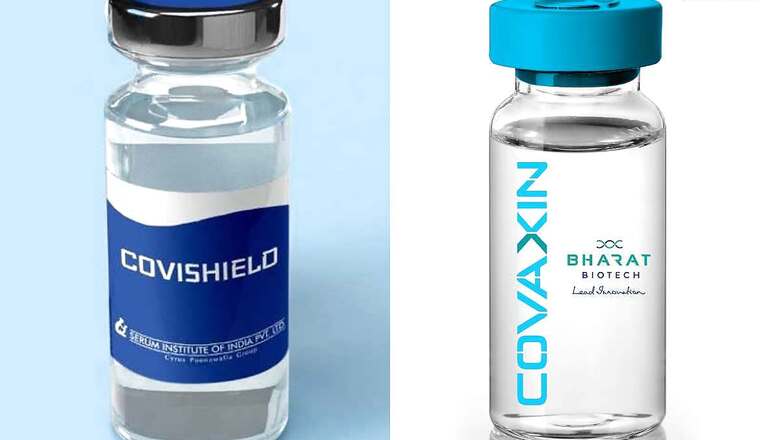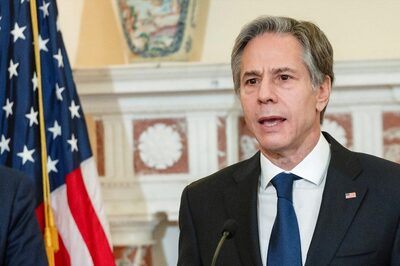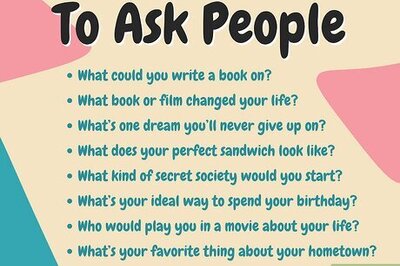
views
Prime Minister Narendra Modi kick-started the next phase of Covid-19 vaccination in India on Monday by taking the first dose of the coronavirus vaccine and appealed to those who are eligible to follow suit.
“Took my first dose of the COVID-19 vaccine at AIIMS. Remarkable how our doctors and scientists have worked in quick time to strengthen the global fight against COVID-19. I appeal to all those who are eligible to take the vaccine. Together, let us make India COVID-19 free!,” said the prime minister on Twitter.
India will expand its vaccination programme today to cover people over 60 and those over 45 with co-morbidities amid a growing number of more infectious virus strains and a spurt in cases.
Two made in India vaccines – Oxford-AstraZeneca’s ‘Covishield’ and Bharat Biotech’s ‘Covaxin’ have been approved for emergency use authorisation. Over the next six to eight months, nearly three crore high-risk people, including healthcare and frontline workers, will be inoculated during the initial phase of COVID-19 vaccination drive that begins on Saturday.
The vaccine sites offer either Covishield or Covaxin in order to avoid providing recipients the option to choose one vaccine over the other. The COVID-19 vaccination is not compulsory for anyone and people can choose not to get vaccinated. Here’s what we know about the efficiency of these vaccines so far:
Covishield
This vaccine has been developed by the University of Oxford and British-Swedish pharmaceutical company AstraZeneca. Adar Poonawalla, Chief Executive Officer, Serum Institute of India (SII) — which is British-Swedish pharma giant AstraZeneca’s manufacturing partner – said that the vaccine is 90 to 95 per cent effective if the two shots are parted by around 2-3 months. “You’ll be hearing some good news from the UK very soon… It would be a 90-95% effective vaccine if you just keep a two-to-three months’ gap between dose 1 and dose 2. They will make that public with documentation.”
Covishield, Poonawalla added, is highly effective vaccine against novel coronavirus. The vaccine is being touted as one of the most promising vaccines for India where cost and logistics play a big roll.
According to a report in NDTV, unlike the Pfizer and Moderna vaccines, which use a newer approach called mRNA making them more complex, fragile and require ultracold temperatures, Covishield is a vector vaccine which are slower but cheaper and importantly, can be kept stable for six months at standard refrigerator temperatures.
Covaxin
Covaxin has been developed by Indian biotechnology company Bharat Biotech and clinical research body Indian Council of Medical Research (ICMR). The NDTV report calls Covaxin an inactivated vaccine — one of the oldest methods for vaccinating people – which means that whole, inactivated viruses are injected in the body to trigger an immune response. These whole batches of coronavirus must be grown, “killed” using a chemical or heat and then made into a vaccine, making it a longer process, the report says.
Vaccination sites at the six Mumbai central government hospitals will give Covaxin. The consent form stated that the beneficiaries will be provided care in government-designated and authorized hospitals in case of any serious side effects due to the vaccine, a Times of India report said.
Beneficiaries who receive Covaxin will be paid compensation if they suffer adverse event due to the vaccine. The compensation was among the points highlighted on top of the consent form shared with the vaccination centre on Friday.
Also Read: Beginning of End of Covid-19, Says Health Minister Harsh Vardhan Ahead of Vaccination Drive
Read all the Latest News, Breaking News and Afghanistan News here

















Comments
0 comment